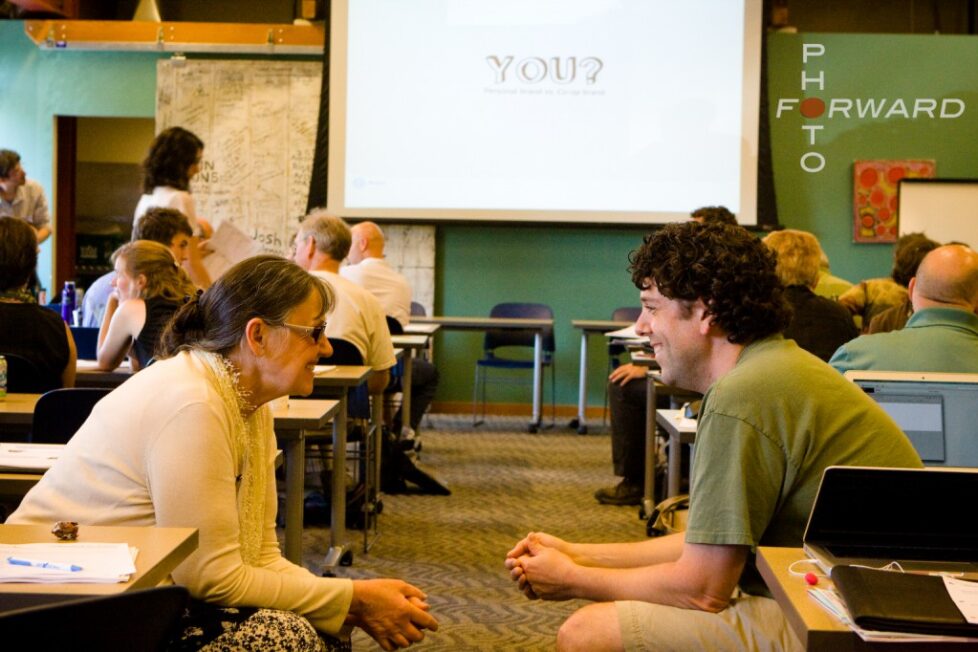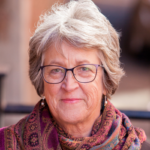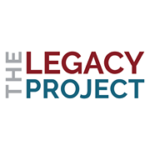
Building the Next Generation of Ownership Through the Cooperative Model
By 2024, all “Baby Boomers” (those born from 1946 through 1964) will be at least 60 years old. As business owners from this birth cohort plan their retirement, they may not readily find a buyer or have family members interested in keeping the business operational.
Rural business owners without a clear exit strategy may benefit by selling to their employees through either a cooperative or an employee stock ownership plan (ESOP). These models offer owners a viable exit strategy, offer opportunities for rural workers to retain their jobs, allow for the retention of local ownership, and maintain economic vibrancy and identity for the community.
NWCDC in conjunction with a number of partners including the Washington State Grange, the US Department of Agriculture-Rural Development Agency, and others have created the “Legacy Project”. This project aims to raise the profile of the co-operative option in succession planning among rural business owners by educating business advisors, business owners, and community economic developers of the benefits of converting their business to a worker co-operative throughout the Pacific Northwest . Executive Director Diane Gasaway notes, “Small business advisors are the target audience for their potential to establish a continuing education pathway.”
Target Communities
In the first round of the Legacy Project, NWCDC will be focusing on 19 communities in the pacific northwest. These communities were chosen due to a number of factors including being centrally located to their region, previous cooperative projects, and connection to a Small Business Development Center or other Economic Development network among other factors.
Communities
- In Idaho, the Legacy Project focuses on Salmon, Hagerman, and Driggs.
- Oregon communities include La Grande, Ontario, Redmond, Coos Bay, Klamath Falls
- Washington communities include Aberdeen, Centralia, Colfax, Longview, Moses Lake, Mt. Vernon, Port Angeles, Shelton-Olympia, Toppenish, Wenatchee.
Dates and Times
The Legacy Project tour of a 3-hour workshop on converting to a worker-owned business was presented throughout the Pacific Northwest in several communities in 2019:
Date Community
- April 29, 2019 Coos Bay, Oregon*
- April 30, 2019 Redmond, Oregon
- May 15, 2019 Mount Vernon, Washington
- May 16, 2019 Port Angeles, Washington
- May 17, 2019 Olympia, Washington^
- May 29, 2019 Hagerman, Idaho
- May 30, 2019 Ontario, Oregon
- May 31, 2019 La Grande, Oregon
- June 13, 2019 Idaho Falls, Idaho
- June 25, 2019 Toppenish, Washington
- June 26, 2019 Wenatchee, Washington
*The Legacy Project was part of the Oregon Employers Council Annual Meeting.
Key Staff
It takes a village to create a co-op. The Legacy Project draws on considerable knowledge and experience in the cooperative world along with professional technical assistance providers in the areas of law, accounting, finance, and estate planning.
NWCDC Cooperative Technical Assistance Provider
Diane Gasaway, Executive Director
 Diane joined the Center in 2003 and together with the NWCDC Board of Directors has been responsible for building the Center into what it is today. Her specialty is in strategic planning, co-op education, co-op development, grant administration, and budget management for a multitude of projects. Diane has 13 years of experience in the financial services industry. She received a Master of Public Administration (with a co-op emphasis) from The Evergreen State College.
Diane joined the Center in 2003 and together with the NWCDC Board of Directors has been responsible for building the Center into what it is today. Her specialty is in strategic planning, co-op education, co-op development, grant administration, and budget management for a multitude of projects. Diane has 13 years of experience in the financial services industry. She received a Master of Public Administration (with a co-op emphasis) from The Evergreen State College.
John A. McNamara, Senior Cooperative Development Specialist
 John joined NWCDC in the Spring of 2014. John has 26 years of practical experience in the worker cooperative world with Union Cab of Madison. John holds a Ph.D. in Business Administration and a Masters in Management: Cooperative and Credit Unions from Saint Mary’s University (Halifax). His dissertation examined how co-ops manage within the context of co-op values and principles. He occasionally teaches a summer course on worker cooperatives at The Evergreen State College and has edited a collection of essays on measuring co-operatives available as an e-book at no cost from the Cooperative Difference.
John joined NWCDC in the Spring of 2014. John has 26 years of practical experience in the worker cooperative world with Union Cab of Madison. John holds a Ph.D. in Business Administration and a Masters in Management: Cooperative and Credit Unions from Saint Mary’s University (Halifax). His dissertation examined how co-ops manage within the context of co-op values and principles. He occasionally teaches a summer course on worker cooperatives at The Evergreen State College and has edited a collection of essays on measuring co-operatives available as an e-book at no cost from the Cooperative Difference.
Professional Technical Assistance Providers
Jason Weiner
 Jason is the Principal of a boutique law and business consulting practice and co-founder of “Colorado Cooperative Developers”. Jason’s specialty is in cooperative law, shared ownership models, cooperative finance, regenerative capital and financing strategies, sustainable economies law, teal lawyering, virtual outside general counsel, and worker-ownership. Jason has advised on more than a dozen worker-cooperative conversions, several multi-stakeholder ownership conversions, and more than a dozen platform cooperatives. Jason has also advised numerous clients through socially responsible financings, including through membership capital campaigns, private offerings, and qualified intrastate public offerings. Jason holds a B.S. from Cornell University’s School of Industrial and Labor Relations and a J.D. cum laude from Suffolk University Law School, where he received honors with a concentration in international law.
Jason is the Principal of a boutique law and business consulting practice and co-founder of “Colorado Cooperative Developers”. Jason’s specialty is in cooperative law, shared ownership models, cooperative finance, regenerative capital and financing strategies, sustainable economies law, teal lawyering, virtual outside general counsel, and worker-ownership. Jason has advised on more than a dozen worker-cooperative conversions, several multi-stakeholder ownership conversions, and more than a dozen platform cooperatives. Jason has also advised numerous clients through socially responsible financings, including through membership capital campaigns, private offerings, and qualified intrastate public offerings. Jason holds a B.S. from Cornell University’s School of Industrial and Labor Relations and a J.D. cum laude from Suffolk University Law School, where he received honors with a concentration in international law.
***
Jason has served on the Boards of several worker-owned businesses around the country, including Equal Exchange and Colorado Recovery.
Jason has published more than 6 scholarly law review articles on international, human rights and fair trade, open-sourcing renewable energy technology topics and speaks regularly about socially responsible alternative financing and capitalization strategies, cooperatives, and social enterprise business models. Jason is an adjunct professor in CSU’s Global Sustainability and Social Enterprise program, where he teaches an MBA course on business law and ethics. He is also a guest lecturer at C.U. Law’s Entrepreneurial Law Clinic, and is mentors for the Sustainable Community Development Clinic.
Linda Phillips
 Linda Phillips is Senior of Counsel at Jason Wiener PC, a public benefit corporation, based in Denver, Colorado. She has a B.S.B.A. from Regis University in Denver and a J.D. from the University of Denver, Sturm College of Law. Linda represents small to medium-sized businesses, with a strong emphasis on all types of cooperatives, including worker cooperatives. Linda began assisting cooperatives in 1991, first as a paralegal and later as an attorney. Her work includes business formations, business planning and general counsel for the cooperative community related to their business enterprises. Linda advises clients about types of business entities and tax issues involved with starting a company and continues to help companies when they are up and running concerning real estate leasing or purchasing, contract drafting, employment issues, board governance, and general business issues. Linda assists companies that are interested in selling their businesses to employees, including coordination and discussions between owners and employees, drafting appropriate documents required for transfer and advising owners and employees about solutions to some of their business and legal issues.
Linda Phillips is Senior of Counsel at Jason Wiener PC, a public benefit corporation, based in Denver, Colorado. She has a B.S.B.A. from Regis University in Denver and a J.D. from the University of Denver, Sturm College of Law. Linda represents small to medium-sized businesses, with a strong emphasis on all types of cooperatives, including worker cooperatives. Linda began assisting cooperatives in 1991, first as a paralegal and later as an attorney. Her work includes business formations, business planning and general counsel for the cooperative community related to their business enterprises. Linda advises clients about types of business entities and tax issues involved with starting a company and continues to help companies when they are up and running concerning real estate leasing or purchasing, contract drafting, employment issues, board governance, and general business issues. Linda assists companies that are interested in selling their businesses to employees, including coordination and discussions between owners and employees, drafting appropriate documents required for transfer and advising owners and employees about solutions to some of their business and legal issues.
Linda helped form and was on the Board of Directors of the Rocky Mountain Employee Ownership Center, a nonprofit that promotes employee-owned business models. She has helped the organization grow and focus its efforts on employee ownership as a viable alternative to today’s corporate culture. She was Secretary on the Board of Directors of the Legal Community Credit Union, another form of cooperative enterprise, from 2011 to 2014. Published works include: “Worker Cooperatives, Their Time Has Arrived”, The Colorado Lawyer, September, 2011; co-wrote with Jason Wiener – Chapter 15, Cooperative Businesses, in The Practitioner’s Guide to Colorado Business Organizations”, redrafted each year from 2013 to present, published by Continuing Legal Education in Colorado, Inc.; co-wrote with Jason Wiener a chapter on Colorado cooperative law for the legal website www.co-oplaw.org. In 2017 Linda received The Denver Foundation’s Philanthropic Leadership Award for her work with cooperatives in disadvantaged communities.
Wes Martin
 Wes has spent the last 20 years involved in a variety of his family-owned businesses, ranging from a medium sized HVAC business, franchised deli shops, gas stations and full-service restaurants. During his tenure within the management of these businesses, Wes has been involved personally in multiple purchases and the eventual sale of several of his own businesses.
Wes has spent the last 20 years involved in a variety of his family-owned businesses, ranging from a medium sized HVAC business, franchised deli shops, gas stations and full-service restaurants. During his tenure within the management of these businesses, Wes has been involved personally in multiple purchases and the eventual sale of several of his own businesses.
Combining his personal history and extensive transactional experience during the last five years in the business brokerage practice gives Wes a ground-level perspective to his client’s needs. Wes’ approach to his client relationships revolves around assisting them with their goals in an honest, professional, and confidential manner. Trade relationships include membership in the International Business Brokers Association (IBBA), and the Thurston County Chamber of Commerce.
